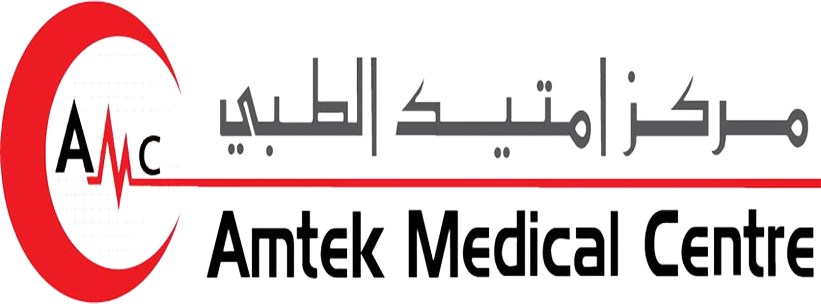
-
Posted By admin
-
-
Comments 0
Common Health Issues You Should Never Ignore
Staying healthy in a fast-paced lifestyle like that of the UAE can be challenging. Busy schedules, high temperatures, dietary habits, and work-related stress often cause people to overlook symptoms that may seem minor but indicate serious health concerns. Ignoring early signs can lead to chronic conditions or emergencies.
In this blog, we’ll highlight some health issues in UAE that should never be ignored, explain their possible causes, and guide you on when to seek medical attention.
Why Paying Attention to Symptoms Matters
Your body sends warning signs when something’s wrong. Early detection not only improves treatment success rates but can also reduce healthcare costs and long-term damage. According to a report by WHO, non-communicable diseases like cardiovascular issues, diabetes, and respiratory disorders account for over 70% of global deaths — many of which begin with minor symptoms.
1. Persistent Headaches
Occasional headaches may result from dehydration or lack of sleep. But persistent or sudden severe headaches can signal:
- Migraine
- Sinus infection
- High blood pressure
- Brain aneurysm (in rare cases)
If headaches worsen or are accompanied by nausea, vision issues, or confusion, consult a doctor immediately.
2. Chest Pain
Chest pain is never something to ignore. It might not always point to a heart attack, but it can indicate serious problems such as:
- Cardiovascular disease
- Gastroesophageal reflux disease (GERD)
- Pulmonary embolism
- Muscle strain
With heart disease being one of the leading health issues in UAE, regular cardiovascular screenings are crucial, especially for individuals over 40 or with a family history.
3. Fatigue and Weakness
Constant fatigue, even after adequate rest, can hint at deeper problems like:
- Anemia
- Thyroid disorders
- Chronic fatigue syndrome
- Vitamin B12 deficiency
In UAE’s hot climate, fatigue can also be a sign of dehydration or electrolyte imbalance. If weakness is frequent, consider booking a Weakness and dizziness checkup Ajman to rule out underlying causes.
4. Shortness of Breath
Struggling to breathe during normal activities is not normal. Possible causes include:
- Asthma
- Chronic obstructive pulmonary disease (COPD)
- Anxiety disorders
- Heart conditions
Environmental triggers such as dust and humidity in UAE often exacerbate respiratory issues, making this a common local concern.
5. Digestive Discomfort
Frequent bloating, stomach cramps, or irregular bowel movements may be signs of:
- Irritable Bowel Syndrome (IBS)
- Food intolerance (e.g., lactose or gluten)
- Gastric ulcers
- Infections
Ignoring digestive issues could worsen the problem, especially when combined with weight loss or blood in stool.
Common Symptoms and Their Possible Causes
Symptom | Possible Causes |
Chest pain | Heart issues, GERD, pulmonary embolism |
Headache | Migraine, hypertension, eye strain |
Fatigue | Anemia, thyroid problems, chronic diseases |
Dizziness | Low BP, dehydration, vertigo, inner ear disorders |
Abdominal discomfort | IBS, ulcers, infection, lactose intolerance |
Cough (persistent) | Asthma, bronchitis, GERD, COVID-19 |
Shortness of breath | Asthma, COPD, cardiovascular diseases |
6. Dizziness and Balance Problems
Feeling lightheaded or faint might indicate:
- Blood pressure abnormalities
- Dehydration
- Inner ear problems
- Neurological disorders
In the UAE’s hot and humid environment, dehydration-induced dizziness is common but shouldn’t be brushed off, especially if recurring.
7. Frequent Urination or Thirst
These could be early warning signs of type 2 diabetes, a growing concern among UAE residents due to sedentary lifestyles and dietary habits. Early diagnosis is essential to prevent complications like kidney damage, vision loss, and nerve issues.
Key Takeaways
- Seemingly minor symptoms can indicate serious underlying health issues in UAE.
- Don’t ignore fatigue, chest pain, dizziness, or digestive issues.
- Early detection and consultation improve treatment outcomes.
- Environmental and lifestyle factors in the UAE can amplify certain symptoms.
- Schedule regular health screenings to stay ahead of potential risks.
Listening to your body is the first step toward better health. As Naomi Judd once said, “Your body hears everything your mind says. Stay alert, act early.” This mindset can make all the difference between early recovery and long-term complications.
FAQs
1. What are the most common health issues in UAE?
Cardiovascular diseases, diabetes, respiratory conditions, and digestive issues are some of the most prevalent health issues in UAE, often influenced by lifestyle and environment.
2. When should I be concerned about fatigue?
If fatigue persists for more than a few days despite proper rest and nutrition, it could indicate anemia, thyroid dysfunction, or another medical condition.
3. Can dizziness be a symptom of something serious?
Yes. While it can result from dehydration or stress, recurring dizziness may point to blood pressure issues, neurological disorders, or heart conditions.
4. How does the UAE climate affect health?
The extreme heat and humidity increase risks of dehydration, heatstroke, and exacerbate respiratory issues like asthma or sinusitis.
5. What checkups should I schedule if I feel weak or dizzy?
It’s advisable to get a Weakness and dizziness checkup in Ajman that includes blood tests, BP monitoring, and general screening to identify the root cause.
Final Thoughts
Ignoring early warning signs can be costly physically and financially. The goal of preventive healthcare is not just to treat but to prevent disease. Listen to your body, stay hydrated, and seek medical help when symptoms persist.


